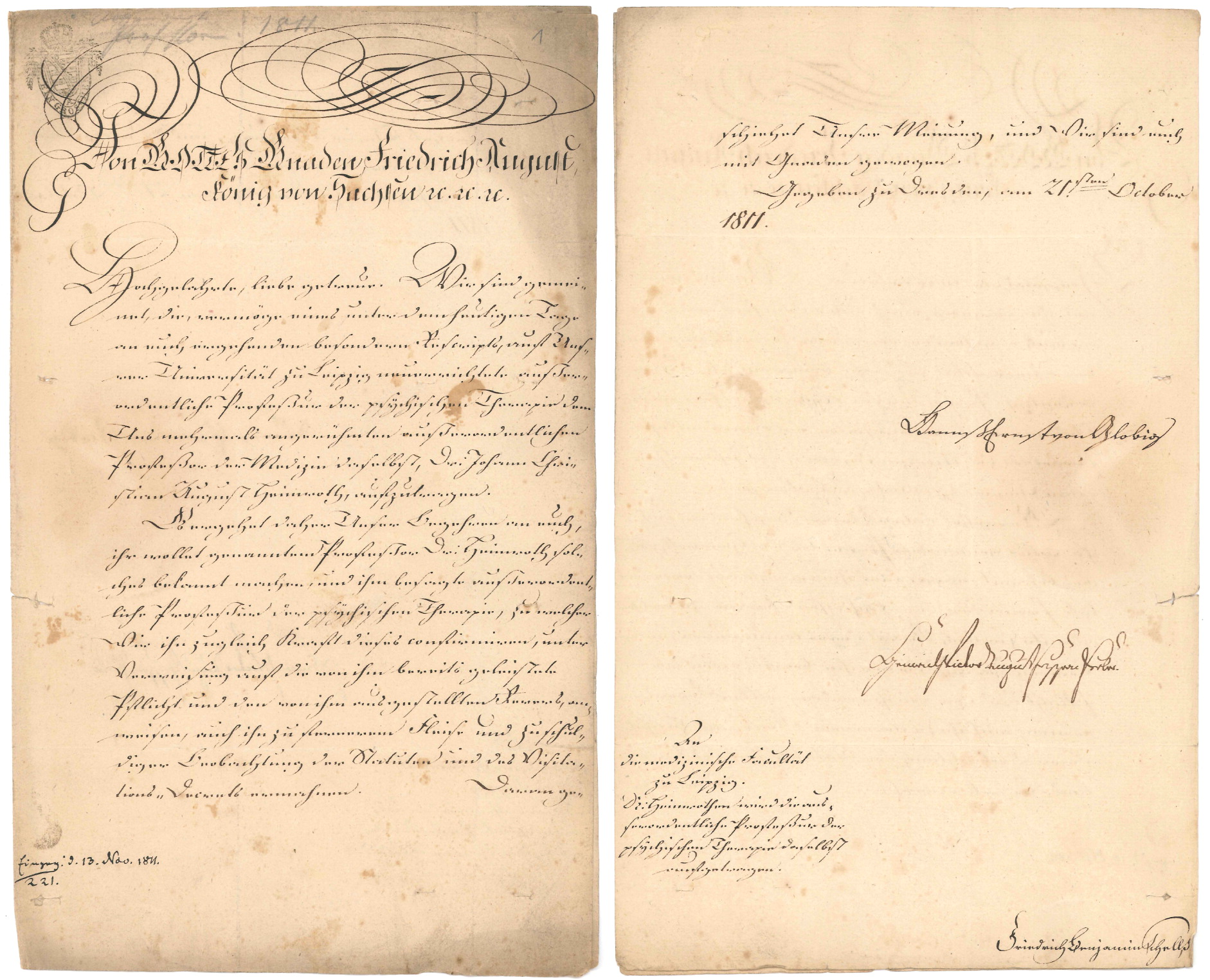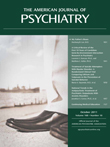October 21 is a birthday for academic psychiatry (
1,
2). On that date in 1811, the administration of King Frederick August I in Saxony ruled that an associate professorship for “mental therapy” would be established at the kingdom's university in Leipzig and that Johann Christian August Heinroth (1773–1843) would be appointed, as declared in the document displayed here (Leipzig University School of Medicine archives, A IV 14, volume 2).
Because of its profitable mining and textile industry, Saxony was one of the economically most advanced areas in central Europe. Moreover, since 1806, French liberalism had nurtured cultural, scientific, and political ambitions for social reforms. In 1810, young professors succeeded in demanding better career opportunities, which led to realignment of existing professorships in medicine at Leipzig University and establishment of new ones. The new chair for mental therapy hence was part of a larger project supervised by minister Gottlob Adolph Ernst von Nostitz und Jänkendorf, responsible for the Saxon penal, social, and health care institutions (
3). He was the head of a social conservative philanthropic movement aimed especially at reforming mental health care. He also initiated the first two Saxon mental asylums, established at Sonnenstein and Waldheim in 1811. To secure specialist training for the future doctors at these institutions, the minister regarded it necessary to establish a chair in Leipzig dedicated particularly to the complex issues of mental illness and specialized cures and treatments for the insane. Owing to the Napoleonic Wars, which affected Leipzig in the Battle of the Nations, the chair could not be supplemented by the erection of a university psychiatric hospital. Also, establishment of a chair dedicated especially to psychiatry did not act as a model for other universities at that time. Chairs for psychiatry were not set up there before the 1840s. The distinction between academic psychiatry on the one hand, regarded as elitist, and institutions for mental health care on the other, which is manifest in Germany until the present day, emerged.
In Leipzig, neurological and psychiatric issues had been taught more or less regularly since the 1750s, but not before 1806 had this constancy been guaranteed—by Heinroth (
2), one of the “cadre of ambitious, able people aiming to make a…career and a name” through psychiatry, as Porter described them for the time before and around 1800 (
4). Heinroth may have chosen to become a medical pastor to integrate a calling for theology into medicine. The issue of whether madness was a philosophical, pedagogical, theological, or medical problem was ended around 1800, when the first dedicated mental asylums were placed in medical custody. These doctors for the insane followed two different approaches, which fought each other fiercely, especially in Germany. There was the moral, psychosocial approach, most prominently represented by Heinroth, who connected mental illness with sin (
5), versus the brain-anatomical, organic approach (
6).
Heinroth's associate professorship was never upgraded to full professorship. Although he repeatedly tried to achieve that, in 1819 he was made full professor only of medicine in general, not of “mental therapy” (Landesregierung Geheime Kanzlei 6111, volumes V–VII, Saxon State Archive, Dresden, Germany). Supported by the medical faculty, he also became doctor in charge at the town's largest care institution in 1813. This housed mentally ill inmates, whom he used for clinical demonstrations for the maximum benefit of his students. Heinroth became known through his
Lehrbuch der Störungen des Seelenlebens oder der Seelenstörungen und ihre Behandlung (
Textbooks of the Disturbances of Mental Life) (
7), which became a reference work in psychiatry in the first half of the 19th century.


